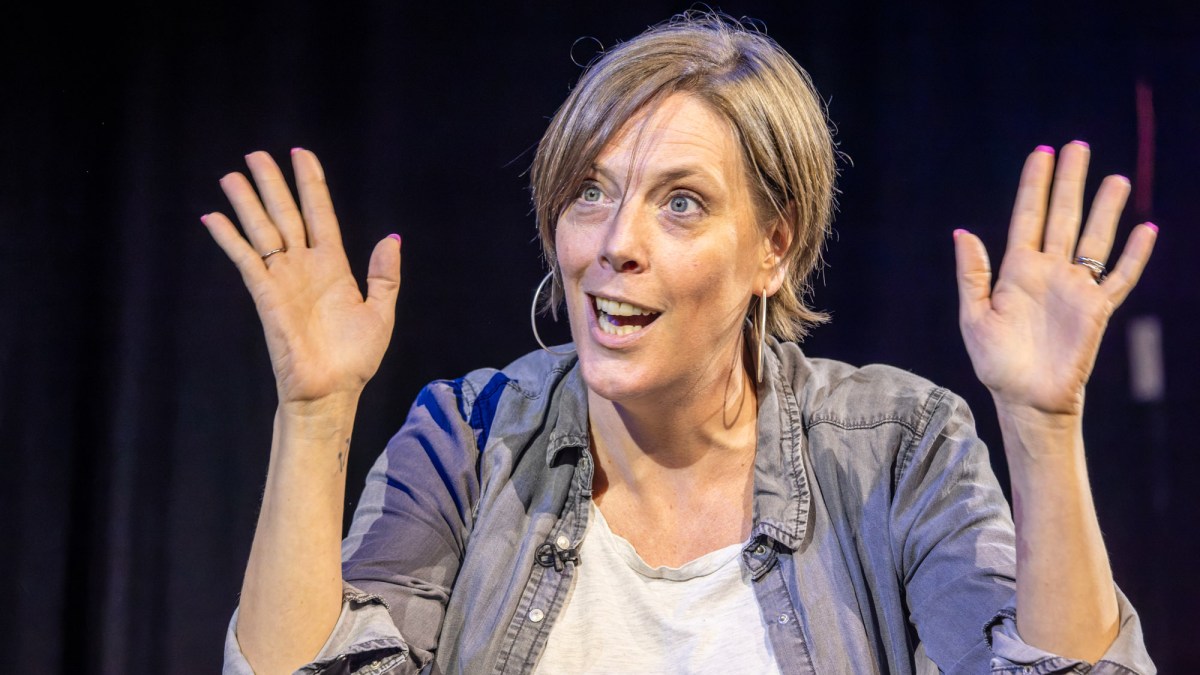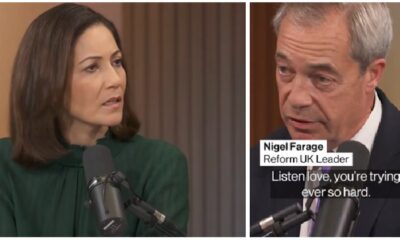Politics
Jess Phillips Accuses Farage of Endangering Children Online

Jess Phillips, the UK Home Office minister for safeguarding and violence against women and girls, has accused Nigel Farage of enabling “modern-day Jimmy Saviles” through his party’s pledge to repeal the Online Safety Act. This statement reignites the ongoing conflict between the government and Farage’s Reform UK over internet age verification measures aimed at protecting children from online abuse.
In an article published in The Times on March 11, 2024, Phillips criticized Farage, claiming that his actions demonstrate a disregard for victims. She argued that he prioritizes “clicks for his monetised social media accounts” over the safety of children online. This assertion comes in the wake of a heated exchange between Farage and Peter Kyle, the UK’s science and technology secretary, who recently stated that Farage aligns himself “on the side of predators” by opposing the Online Safety Act.
The Online Safety Act aims to enhance protections for children against harmful online content and activities. Farage’s stance is that the legislation fails to adequately safeguard minors and instead infringes on free speech. He has demanded an apology from Kyle for his comments, which have sparked considerable debate within the government regarding Farage’s position and motivations.
Kyle has maintained his criticism without retraction, suggesting that Farage’s opposition to the Online Safety Act reflects a troubling alignment with notorious figures such as Jimmy Savile. Savile, a convicted paedophile, was one of the most infamous child abusers in British history, and linking Farage to him has intensified the political backlash.
The implications of this dispute extend beyond political rhetoric. Advocates for child safety worry that repealing the Online Safety Act could undermine crucial protections for vulnerable individuals online. Phillips’s comments highlight the broader concerns about the potential impact of political decisions on child welfare in the digital age.
As the debate continues, the future of the Online Safety Act hangs in the balance. Policymakers are under increasing pressure to navigate the complexities of internet regulation while ensuring that children’s safety remains a top priority. Farage’s Reform UK has positioned itself as a champion of free speech, but critics argue that this stance could come at the expense of safeguarding the most vulnerable members of society.
The unfolding situation underscores the urgent need for a balanced approach to online safety, one that protects children without unduly restricting freedom of expression. As discussions evolve, the public and political leaders alike will be closely watching how this contentious issue develops in the weeks ahead.
-

 Entertainment3 months ago
Entertainment3 months agoAnn Ming Reflects on ITV’s ‘I Fought the Law’ Drama
-

 Entertainment4 months ago
Entertainment4 months agoKate Garraway Sells £2 Million Home Amid Financial Struggles
-

 Health3 months ago
Health3 months agoKatie Price Faces New Health Concerns After Cancer Symptoms Resurface
-

 Entertainment3 months ago
Entertainment3 months agoCoronation Street’s Carl Webster Faces Trouble with New Affairs
-

 Entertainment2 months ago
Entertainment2 months agoWhere is Tinder Swindler Simon Leviev? Latest Updates Revealed
-

 Entertainment4 months ago
Entertainment4 months agoMarkiplier Addresses AI Controversy During Livestream Response
-

 Science1 month ago
Science1 month agoBrian Cox Addresses Claims of Alien Probe in 3I/ATLAS Discovery
-

 Entertainment4 months ago
Entertainment4 months agoKim Cattrall Posts Cryptic Message After HBO’s Sequel Cancellation
-

 Entertainment2 months ago
Entertainment2 months agoOlivia Attwood Opens Up About Fallout with Former Best Friend
-

 Entertainment3 months ago
Entertainment3 months agoMasterChef Faces Turmoil as Tom Kerridge Withdraws from Hosting Role
-

 Entertainment4 months ago
Entertainment4 months agoSpeculation Surrounds Home and Away as Cast Departures Mount
-

 World2 months ago
World2 months agoCole Palmer’s Mysterious Message to Kobbie Mainoo Sparks Speculation





















